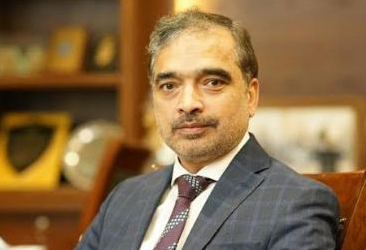F.P. Report
ISLAMABAD: The Pakistan Industrial and Traders Associations Front (PIAF) Chairman Faheemur Rehman Saigol has said that the new $3 billion agreement with the IMF will help the economy stabilize and achieve GDP growth of 2.5% in the new fiscal year of 2023-24, taking the country’s foreign reserves to $14 billion.
Faheemur Rehman Saigol said that the news comes as a major breakthrough for government that ran from pillar to post to meet conditions of the Washington-based lender only to see an incessant delay on a successful completion of the ninth review. During this time, the public was alienated, heavy taxes were imposed, and questions were raised on Pakistan’s debt obligations.
He said that the IMF Executive Board is likely to meet by mid-July to formally approve the new arrangement with Pakistan. The new facility also unlocks access to capital markets for Pakistan, opening up avenues for lending as it looks to finance its external funding gap. Pakistan has budgeted $1.5 billion as a Eurobond and Sukuk for fiscal year 2023-24.
This amount is likely to be dependent on the rates it is offered in the international market. Pakistan’s foreign exchange reserves, currently under $4 billion, are likely to get a boost as Saudi Arabia, UAE, and other bilateral partners also come through. T
his is a fresh nine-month program, implying that to move forward, there will be a new set of conditions to keep the SBA going. It gives some room to the government ahead of elections, and takes the onus off the ‘caretaker setup’ to take measures for the economy. The IMF will keep a close eye for the next nine months to ensure Pakistan does not sway from its economic measures.
The key things it will look at will be the imposition of the petroleum development levy (the new ceiling is Rs60). The IMF acknowledged that Pakistan’s economy faced several external shocks, but was quick to point out that there were some policy missteps including shortages from constraints on the functioning of the FX market.
The IMF said the SBP should remain proactive to reduce inflation, and maintain a foreign exchange framework free of restrictions on payments and transfers for current international transactions and multiple currency practices. This could mean that the key policy rate is likely to remain high in the short-term, and anchored inflation will remain a priority.
The PIAF Chairman said that the government needs to implement economic stabilization policies for a prolonged period to correct critical imbalances threatening its economic viability.
He said that any deviation from the fiscal and monetary path agreed with the IMF will increase the cost during negotiations for the next loan tranche, and the new bailout package.
The country cannot afford to have a large current account deficit in the current and next fiscal years, as the large deficits in the past have remained an important source for financing consumption-led economic growth. This accelerated the process of economic destabilization of Pakistan.
He said that the government has committed to follow the real positive interest rate going forward, measured by headline inflation. In these challenging times, there is a need for quarterly reporting of the GDP growth figures to reveal real economic patterns. The government, however, will face the challenge of dealing with low economic growth and high inflation – an outcome of politically motivated decisions taken by the successive governments during the past two years.
Due to serious and critical imbalances threatening the country’s economic viability, Pakistan cannot afford to roll out monetary and fiscal policies to achieve high economic growth rate in FY2023-24, starting from July. Under the domino effect of dollarization, the skyrocketing inflation, which is already in the midst of a decade-high level, along with the unprecedented rupee depreciation, high energy tariffs, escalating markup rate, rising commodity prices, fluctuating exchange-rate and balance-of-payment crisis, will lead to further hike in headline inflation, taking a toll on the local economy, he warned.







